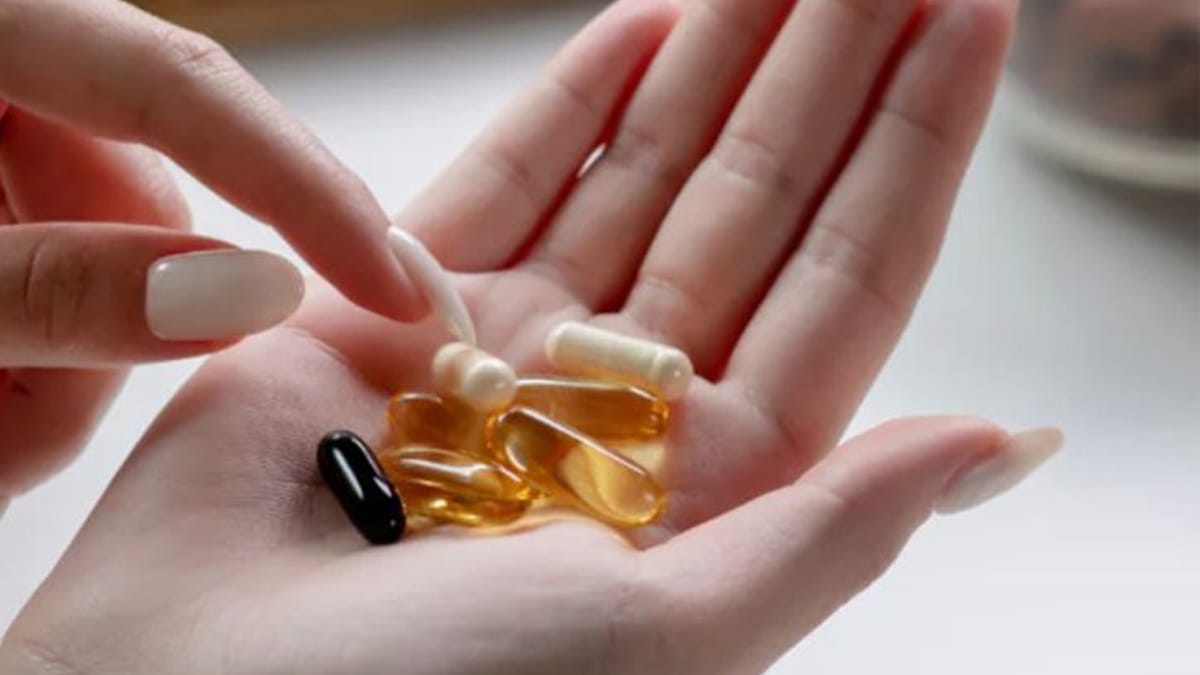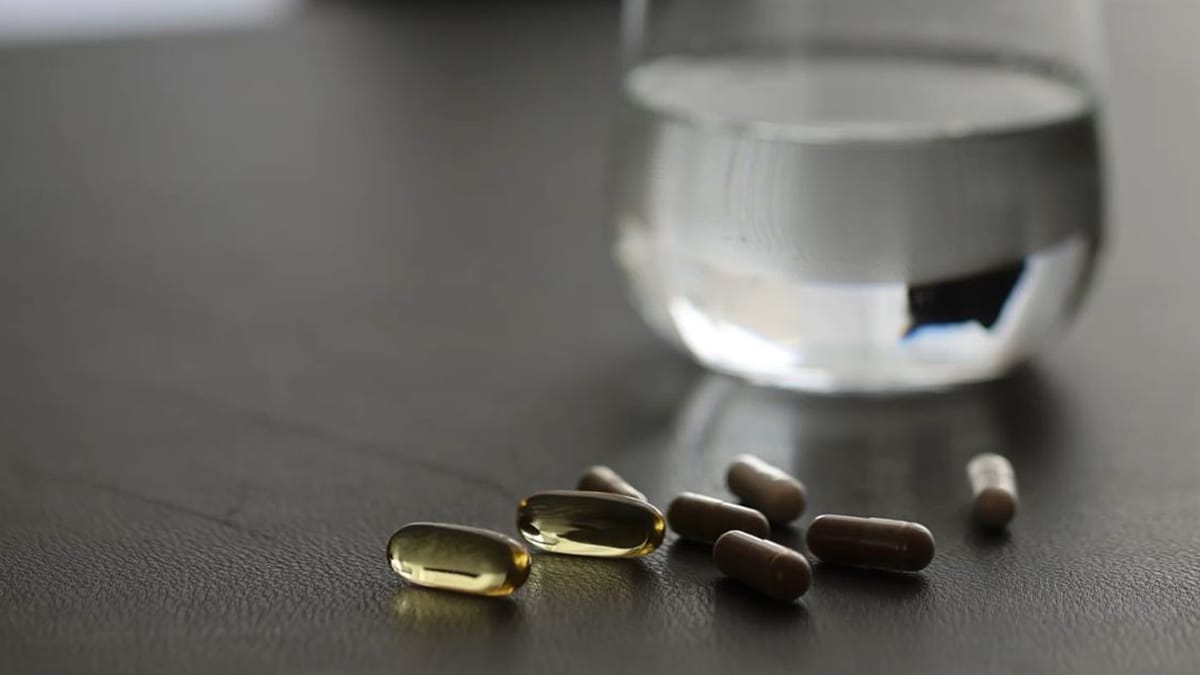4 Science-Backed Benefits of Vitamin K for Bone and Blood Health
Vitamin K is one of the most underrated yet essential nutrients your body needs daily. While vitamins like C and D get all the spotlight, Vitamin K quietly works behind the scenes strengthening your bones, regulating blood clotting, and even protecting your heart. In short, this vitamin could be the missing link between strong bones and a healthy circulatory system.
4 Science-Backed Benefits of Vitamin K for Bone and Blood Health
If you’ve ever wondered why your body needs Vitamin K, how it supports bone and blood health, or what science says about it, this article will give you clear, research-backed answers and actionable guidance you can apply today.
Let’s explore the fascinating science behind Vitamin K and how it can protect your bones and blood health for the long term.

What Is Vitamin K and Why It Matters
Vitamin K is a fat-soluble vitamin that comes in two primary forms: Vitamin K1 (phylloquinone) and Vitamin K2 (menaquinone). Vitamin K1 is mostly found in green leafy vegetables like spinach, kale, and broccoli, while Vitamin K2 is present in fermented foods, egg yolks, and certain animal products.
The body uses Vitamin K to produce proteins essential for blood clotting and calcium regulation. Without it, your blood would not clot properly, and calcium could accumulate in soft tissues rather than your bones a dangerous condition leading to weakened bones and hardened arteries.
In recent decades, scientific research has revealed that Vitamin K plays a much deeper role in maintaining overall health than previously believed. It’s not only about preventing excessive bleeding it’s also about building stronger bones and preventing cardiovascular diseases.
1. Vitamin K Strengthens Bones and Prevents Osteoporosis
One of the most powerful and well-documented roles of Vitamin K is its direct effect on bone metabolism. According to studies published in The American Journal of Clinical Nutrition and Bone Research, Vitamin K activates a specific protein called osteocalcin. This protein binds calcium to the bone matrix, helping your skeleton stay dense and strong.
People with low Vitamin K levels have been found to have a higher risk of bone fractures and osteoporosis, especially postmenopausal women. A long-term study in Japan discovered that participants who consumed adequate Vitamin K2 had a 60% lower risk of hip fractures compared to those with low intake.
To optimize bone health, nutrition experts recommend combining Vitamin K with Vitamin D and calcium. These three nutrients work synergistically Vitamin D enhances calcium absorption, while Vitamin K ensures that calcium goes to your bones instead of your arteries.
Quick tip: Include foods like natto (fermented soybeans), spinach, broccoli, and grass-fed dairy in your diet. These are rich natural sources of Vitamin K1 and K2 that can help prevent bone loss naturally.
2. Vitamin K Regulates Blood Clotting and Prevents Excessive Bleeding
Another critical benefit of Vitamin K is its function in blood coagulation — the process that stops bleeding after an injury. Without enough Vitamin K, even a minor cut could lead to prolonged bleeding, bruising, or dangerous internal hemorrhage.
Vitamin K activates clotting factors II, VII, IX, and X — proteins responsible for forming blood clots. These clotting factors work like an emergency response team, quickly sealing wounds and preventing blood loss.
A deficiency in Vitamin K can result in bleeding disorders. That’s why newborns are routinely given a Vitamin K injection at birth to prevent hemorrhagic disease of the newborn, a potentially life-threatening condition caused by low Vitamin K levels.
Clinical trials show that adequate Vitamin K intake not only supports normal clotting but also keeps the circulatory system balanced, reducing the risk of both excessive bleeding and unnecessary clot formation.
Pro Tip: If you are taking anticoagulant medication such as warfarin, consult your doctor before increasing Vitamin K intake, as it may interfere with your treatment plan.
3. Vitamin K Supports Heart and Artery Health
Calcium is vital for strong bones, but too much calcium in the wrong places can be dangerous particularly when it accumulates in your arteries. Vitamin K2 plays a crucial role in preventing this.
It activates a protein called matrix Gla-protein (MGP), which prevents calcium from depositing in the arterial walls. When your arteries stay flexible and clear, your heart works more efficiently, reducing your risk of cardiovascular disease.
A landmark study from The Rotterdam Study found that individuals with the highest intake of Vitamin K2 had a 50% lower risk of arterial calcification and 25% lower risk of dying from heart disease. Meanwhile, Vitamin K1 had less impact, showing that K2 might be more crucial for cardiovascular protection.
Key takeaway: A diet rich in Vitamin K2 from foods like cheese, egg yolks, and natto may help reduce your risk of heart attacks, arterial stiffness, and early cardiovascular aging.
4. Vitamin K Improves Cognitive Function and Brain Health
Recent scientific discoveries are shedding light on Vitamin K’s role in maintaining brain function, especially in older adults. Vitamin K supports the synthesis of sphingolipids, a group of fats that are essential for the brain’s structure and communication between neurons.
Low Vitamin K levels have been linked to cognitive decline, memory impairment, and neurodegenerative disorders like Alzheimer’s disease. In a 2021 study published in Frontiers in Nutrition, researchers found that higher dietary Vitamin K intake was associated with better verbal memory performance and lower risk of dementia.
Additionally, Vitamin K acts as an antioxidant in the brain, protecting nerve cells from oxidative stress and inflammation two major contributors to brain aging.
Including Vitamin K-rich foods in your daily diet can therefore help protect your memory, support concentration, and maintain mental clarity as you age.
Best Food Sources of Vitamin K
If you want to harness the full benefits of Vitamin K, diet is your most powerful tool. Both Vitamin K1 and K2 are essential, but they come from very different sources and understanding this distinction helps you plan smarter meals.
Vitamin K1 (Phylloquinone) is primarily found in plant-based foods, especially green vegetables. Top sources include:
• Kale
• Spinach
• Broccoli
• Collard greens
• Brussels sprouts
• Green peas
• Asparagus
Vitamin K2 (Menaquinone), on the other hand, is mainly found in animal and fermented foods. Examples include:
• Natto (fermented soybeans, the richest source of K2)
• Egg yolks
• Aged cheeses
• Chicken
• Beef liver
• Butter from grass-fed cows
For most people, a mix of both types ensures balanced benefits K1 supports blood health, while K2 strengthens bones and protects arteries.
Expert tip: Pair your Vitamin K-rich foods with healthy fats such as olive oil, avocado, or nuts. Because Vitamin K is fat-soluble, consuming it with dietary fat boosts absorption significantly.
Recommended Daily Intake and Supplementation
The recommended dietary allowance (RDA) for Vitamin K varies depending on age, gender, and health conditions. According to the National Institutes of Health (NIH):
• Adult men: 120 mcg/day
• Adult women: 90 mcg/day
Most people can meet this through a balanced diet. However, those with digestive issues, liver disorders, or who take certain medications may need supplementation.
Vitamin K supplements typically come in two forms:
• Vitamin K1 (from plant sources)
• Vitamin K2 (as MK-4 or MK-7)
Among these, Vitamin K2 MK-7 is preferred due to its longer half-life in the body, meaning it stays active longer and provides sustained benefits for bone and cardiovascular health.
Safety note: While Vitamin K is generally safe, excessive supplementation should be avoided, especially if you’re on blood-thinning medication like warfarin. Always consult your healthcare provider before starting any supplement routine.
Maximizing Vitamin K Absorption and Effectiveness
Here are a few practical steps to get the most out of your Vitamin K intake:
Eat it with fat: Because Vitamin K is fat-soluble, pair it with healthy fats (olive oil, avocado, or salmon) to enhance absorption.
Balance with Vitamin D and Calcium: These three nutrients work synergistically. Without Vitamin K, calcium might end up in your arteries instead of your bones.
Include fermented foods: Foods like natto or aged cheese contain Vitamin K2, which has longer-lasting effects than K1.
Avoid excessive alcohol: It interferes with Vitamin K absorption and reduces liver efficiency in storing it.
Diversify your sources: Combine both plant-based and animal-based Vitamin K to support both bone and blood health simultaneously.
Frequently Asked Questions (FAQ)
1. How does Vitamin K differ from Vitamin D in supporting bone health?
Vitamin D helps your body absorb calcium, while Vitamin K ensures that the calcium is deposited into your bones and not your arteries. Both are crucial and work hand-in-hand for skeletal strength.
2. Can Vitamin K help prevent heart disease?
Yes. Vitamin K2 activates proteins that prevent calcium buildup in arteries, maintaining cardiovascular flexibility and lowering the risk of heart disease.
3. Is Vitamin K deficiency common?
Deficiency is rare in healthy adults but can occur in people with poor diets, liver disorders, or those taking long-term antibiotics that disrupt gut bacteria — a natural source of Vitamin K.
4. What are symptoms of Vitamin K deficiency?
Common signs include easy bruising, prolonged bleeding from cuts, nosebleeds, and weak bones or frequent fractures.
5. Can I take Vitamin K with other supplements?
Absolutely. It’s often paired with Vitamin D, calcium, and magnesium for better synergy. Just ensure you don’t over-supplement if you’re on anticoagulants.
6. Are there any natural products that boost Vitamin K levels?
Yes, look for products containing fermented soy extracts, green vegetable blends, bone-strengthening formulas, or natural fat-based multivitamins.
7. Is it possible to overdose on Vitamin K?
Overdose is extremely rare, as excess Vitamin K is typically excreted by the body. However, taking megadoses through supplements without medical guidance is not recommended.
Recommended Product Categories (No Brand Mention)
Multivitamin with Vitamin K2 + D3
Plant-based Vitamin K1 capsules
Bone and joint support supplements
Natural fermented food powder (Natto extract)
Heart and artery health complex with K2 MK-7
Tips and Warnings to Keep in Mind
Don’t rely solely on supplements — prioritize real food sources first.
Avoid processed foods high in trans fats, which can interfere with Vitamin K absorption.
Regularly monitor your Vitamin D and calcium intake to maintain nutrient balance.
People on blood thinners should not change Vitamin K intake drastically without medical supervision.
Stay consistent — Vitamin K’s effects on bone and heart health are long-term, not overnight results.
Final Thoughts: How to Keep Your Bones and Blood Healthy with Vitamin K
Vitamin K is much more than a “clotting vitamin.” It’s a key player in bone strength, heart protection, and overall vitality. Whether you’re a young adult looking to prevent early bone loss or an older adult aiming to stay mobile and sharp, Vitamin K deserves a permanent spot in your nutrition plan.
Here are 7 final tips to make the most of it:
Eat green leafy vegetables daily.
Add fermented foods like natto or cheese to your diet.
Combine Vitamin K with Vitamin D for maximum synergy.
Include healthy fats to improve absorption.
Consider supplements only if your diet lacks variety.
Stay physically active — it supports bone density and circulation.
Schedule regular blood and bone density tests to track progress.
Vitamin K’s role in both bone health and blood regulation makes it one of the most crucial yet overlooked nutrients today. With consistent intake and mindful nutrition, you can protect your skeleton, your heart, and your overall longevity.
Reference & Additional Reading
Inspired by studies and insights from:
www.health.harvard.edu
www.menshealth.com
www.healthline.com
www.womenshealthmag.com
www.ncbi.nlm.nih.gov
www.webmd.com
www.medlineplus.gov
www.tridenttech.edu
www.burnexia.com

